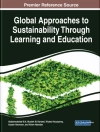The breathless pace of China’s economic reform has brought about deep ruptures in socioeconomic structures and people’s inner landscape. Faced with increasing market-driven competition and profound social changes, more and more middle-class urbanites are turning to Western-style psychological counseling to grapple with their mental distress. This book offers an in-depth ethnographic account of how an unfolding “inner revolution” is reconfiguring selfhood, psyche, family dynamics, sociality, and the mode of governing in post-socialist times. Li Zhang shows that anxiety—broadly construed in both medical and social terms—has become a powerful indicator for the general pulse of contemporary Chinese society. It is in this particular context that Zhang traces how a new psychotherapeutic culture takes root, thrives, and transforms itself across a wide range of personal, social, and political domains.
Spis treści
List of Illustrations
Acknowledgments
Introduction
1. Psy Fever
2. Bentuhua: Culturing Psychotherapy
3. Therapeutic Relationships with Chinese Characteristics?
4. Branding the Satir Model
5. Crafting a Therapeutic Self
6. Cultivating Happiness
7. Therapeutic Governing
Epilogue
Notes
References
Index
O autorze
Li Zhang is Professor of Anthropology at the University of California, Davis. She is the author of two award-winning books, Strangers in the City and In Search of Paradise.












